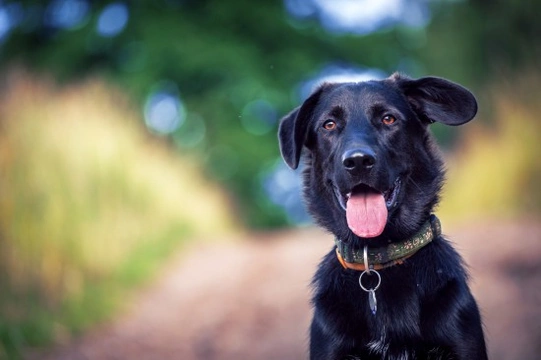
How can you tell if your dog respects you?
Gaining the loyalty and affection of a dog is generally not a difficult process; they are naturally trusting, honest and open animals, and providing that they are kindly and fairly treated and understand the limitations and rules of their lifestyles, will generally bond strongly with you.
Dogs are, by nature, very loyal; they also like having a clear and unambiguous structure of rules for their daily life, and even the most boisterous and outgoing of dogs will be happy with clear, firm leadership and someone to follow. However, a boisterous dog or one that does not understand the limitations placed upon them, or that sees themselves as at the top of the pecking order within the home can soon prove to be a real handful!
It is not always obvious to tell if your dog respects you or not, as of course, dogs and people speak different “languages,” and communicate in a wide range of varied and different ways. So, does your dog respect you? Read on to learn how to find out for sure.
A respectful dog is a happy dog
Dogs that respect you are happy, relaxed and generally at home with themselves and their surroundings. Dogs are simple animals that are very honest in their behaviours, and respecting their owners is a large part of this. Respect should never be confused with fear, and your quest to gain your dog’s respect should not involve overt domination or causing your dog to be afraid of you or unsure of how you will respond to them.
If your dog respects you and is happy, they will happily come to you and tolerate things like grooming or being checked over after a walk, and follow your guidance in situations that are new to them. Their general demeanour should be relaxed and happy, with alert eyes and ears, and they should look to you for guidance and direction.
Relaxed and submissive body language
Your dog’s body language when around you should always be relaxed or, if taking direction, indicate that they are happy with submission. This means that the muscles should be relaxed, the fur should be flat and not raised, the tail should be either wagging or relaxed and not stiff, and the dog’s facial expressions should be open and calm.
If you have to tell your dog off or reiterate a command that they should have followed, the respectful dog will not fix you with a baleful glare, but will instead look away, segueing the dominant role to you with the physical indications that they accept your role as the boss, and respect that.
Follow the leader
In the pack situation- including your own pack that is comprised of your family and your dog- the leader always gets first bite, goes first, and generally leads from the front in every way.
Indications of respect in the dog include being happy to walk behind you or at your side, and very tellingly, holding back to allow you to go first through doors and entrances. The respectful, good mannered dog will never push past you or try to bound through a door first; they will always politely wait for you to go first.
The same is true when it comes to resources such as food. Your dog should expect to wait for their food until you are ready to give it to them, and accept that you will be fed first. If you give your dog table scraps or treats when you eat, bear in mind that this can cause conflict and confusion in the mind of the dog, and lead to begging or a sense of entitlement over your meals.
Dogs that respect you will also be happy to move from the best seat in the house to allow you to take it, and will not seek to challenge your authority when you attempt to move them out of the way or tell them to get down. Common pinch points in canine-human conflict often arise from the placement of the seating arrangements, and this is one of the clearest areas where you can judge how your dog feels about the level of respect that you deserve!
Do not enable disrespect from your dog
It is all too easy to inadvertently cause your dog to disrespect your authority in certain situations, and confuse matters for both your dog and your family. Remember that dogs need clear and consistent guidance and rules for life, not only to keep them respectful, but to make them happy too. While you should of course respect your dog and treat them fairly and kindly, do not act in a deferential manner to them; if your dog is sleeping somewhere that they shouldn’t, don’t think that it is ok to leave them to sleep, and then move them later. Move them right away, and maintain the clear boundaries and rules for life that enable your dog to respect you.



